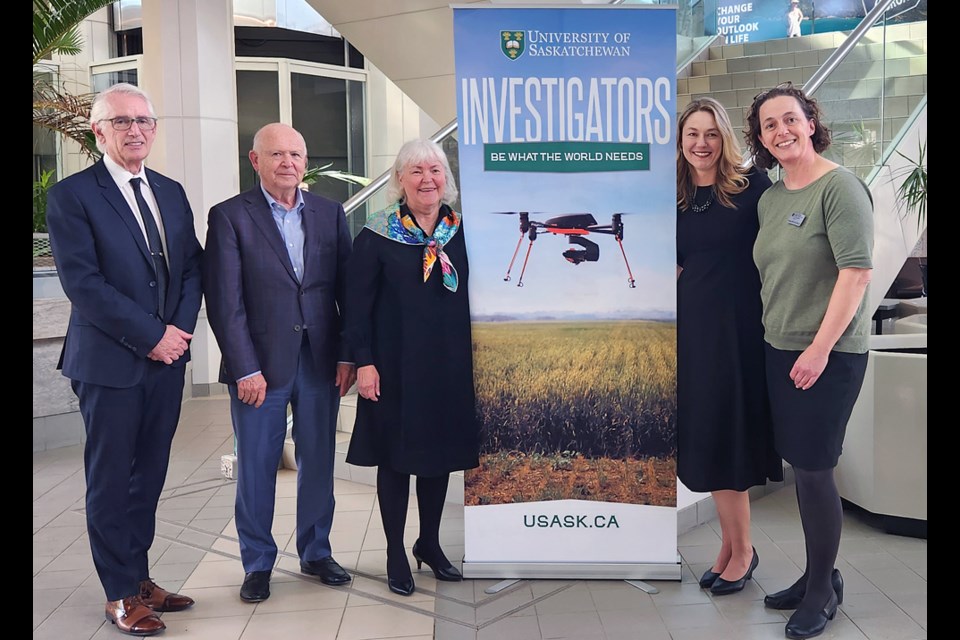SASKATOON – The University of Saskatchewan received a $2m donation from BMO on Wednesday, 12 April, which aims to strengthen the College of Agriculture and Bioresources on regenerative agriculture research capacity and soil health.
College Dean Dr. Angela Beddard-Haugh (Ph. D.) said the BMO-funded programme would expand their research capacity in both areas and would speed up the development of possible solutions for food security while at the same time protecting soil health and other natural resources.
“This [research] will allow us to get the data we need to validate the effectiveness of new management practices. Saskatchewan farmers are always looking for more effective and efficient ways to achieve optimum yields while keeping their costs under control and maintaining the self-health of their soil,” Beddard-Haugh told SASKTODAY.
“It is a complex thing. The best way to assess the effectiveness of management practices is through the kind of research this investment will enable. That includes the investment in equipment that allows us to run samples in several areas and integrate all that data very effectively.”
Beddard-Haugh added that leveraging the power of all the data they collect would enable them to study everything from a systems approach and work with the project chair using the research pieces of the management practices both in the short term and to start understanding the long-term sustainability implications.
“I think the key thing will allow us to understand the variability of fields more effectively. Then we can optimise all of our land bases. Right now, there are areas where we are overusing inputs or under-applying inputs or maybe areas of the field where we know that they are not producing as well as they should, but we do not know why,” she said.
“Our analytical capability will allow us to answer those questions better. By coupling that with reminding and other digital agriculture tools, we can rapidly assess variability across a larger area. That toolkit will allow us to support farmers in optimising their yield across their whole field and using their land.”
Beddard-Haugh said they wanted to start making the right choices based on the data provided by the research to use the best soil management practices, therefore increasing crop yields based on soil improvement to ensure food production remains sustainable by 2050.
“If we make poor decisions, we could decrease our yields because we're depleting the soil. The research that will be carried out by the chair and that will be enabled by the laboratory will allow us to inform those good decisions so we can reach those management and productivity goals,” Beddard-Haugh said.
She added that they are interviewing candidates to head the research project and will have the chair named later this month. “We have some great candidates, but I can’t give you specific names now.”
BMO Private Wealth Canada Regional President Dr. June Zimmer (Ph.D.) said BMO wants to align their investment through their three commitments with their mission of growing foods.
“That is to accelerate critical research into regenerative agriculture and harness the digital capabilities to share data and growth understanding. Thirdly, to enable world-leading student training and advanced agricultural practices at the [U of S]. We are proud to support that,” said Zimmer.

